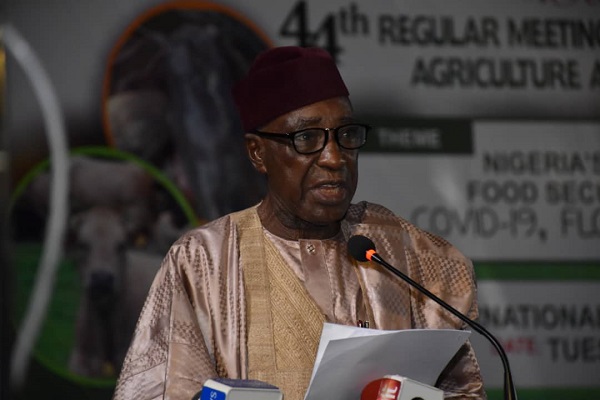
The Minister of Agriculture and Rural Development, Alhaji Muhammad Nanono, has inaugurated the newly reconstituted governing council of the Nigeria Institute of Soil Science (NISS) with the mandate to develop the agricultural sector by encouraging technical cooperation on soil extension services in the nation.
Speaking at the inauguration ceremony in Abuja today (August19), Nanono, said the members’ appointments were clear indication of their hard work, dedication, expertise and experience which he hoped would be brought to bear in the discharge of their duties in improving the institute.
Nanono said his ministry intended “to turn Nigeria into a global powerhouse in food production with a view to enhancing the quality of soil data generation for appropriate analysis, validation, reporting, monitoring and integration with other related intra and inter-sectoral linkages through effective harmonisation of methods, measurement and indicators”.
The minister commended the 5-year strategic action plan launched by the institute in March 2020, stating that, “it is being implemented along the objective of managing and protecting soil resources as well as encouraging technical cooperation on soil extension services,” adding “your appointment in whatever capacity, is a clarion call to action, to transform the agricultural sector of our country”.
Represented by the ministry’s director of human resource department, Alhaji Abba Abdullahi, Nanono further said the strategic plan, “synchronises with the emerging framework of the National Agricultural Technology and Innovation Plan 2021-2015, which focuses on enhancing agricultural research system, rural infrastructure development, private driven mechanisation, agro and agro-allied cluster expansion.”
It is also stressing knowledge generation and innovation for improvement in extension, productivity, value addition and market access, he added.
Responding on behalf of the council, the chairman, Prof.Ayoade Ogunkunle, said the council had worked assiduously in pursuing the mission of the institute which amongst others included regulating the practice of soil science in the country in order to increase productivity for all stakeholders and ensure high agricultural productivity and food security.
He enumerated the achievements of the council during its first tenure to include the development and implementation of a 5-year strategic action plan, establishment of zonal offices for ease of monitoring of activities at the grassroots, inventorization programme to ensure soil analytical laboratories meet international standards and distribution of 240 soil test kits across the geopolitical zonal offices.
Others, according to him, are the development of the draft National Agricultural Soil Management Policy, acquisition of land space for the state of art analytical reference laboratory in Kaduna, nearing completion and also the mandatory continuous professional education to update its members with new development in the profession.
Prof Ogunkunle assured the minister that the council under his chairmanship would adhere strictly to the mandate of their duties for the benefit of smallholders’ farmers at the grassroots.
In his vote of thanks, the registrar of the institute, Prof. Victor Chude, applauded the minister for the approval of laboratory spaces with additional space at the Kaduna soil laboratory in Kaduna and the overall support of the ministry in enabling the institute attain its mandate so far.
He expressed appreciation to the council for the enormous cooperation, support and commitment to the growth of the institute while soliciting more to enable the institute continue on the path to achieving its objective as the foremost regulatory institute for soil science and agricultural practice in Nigeria.

